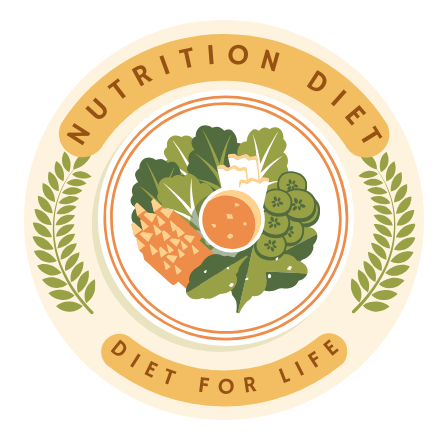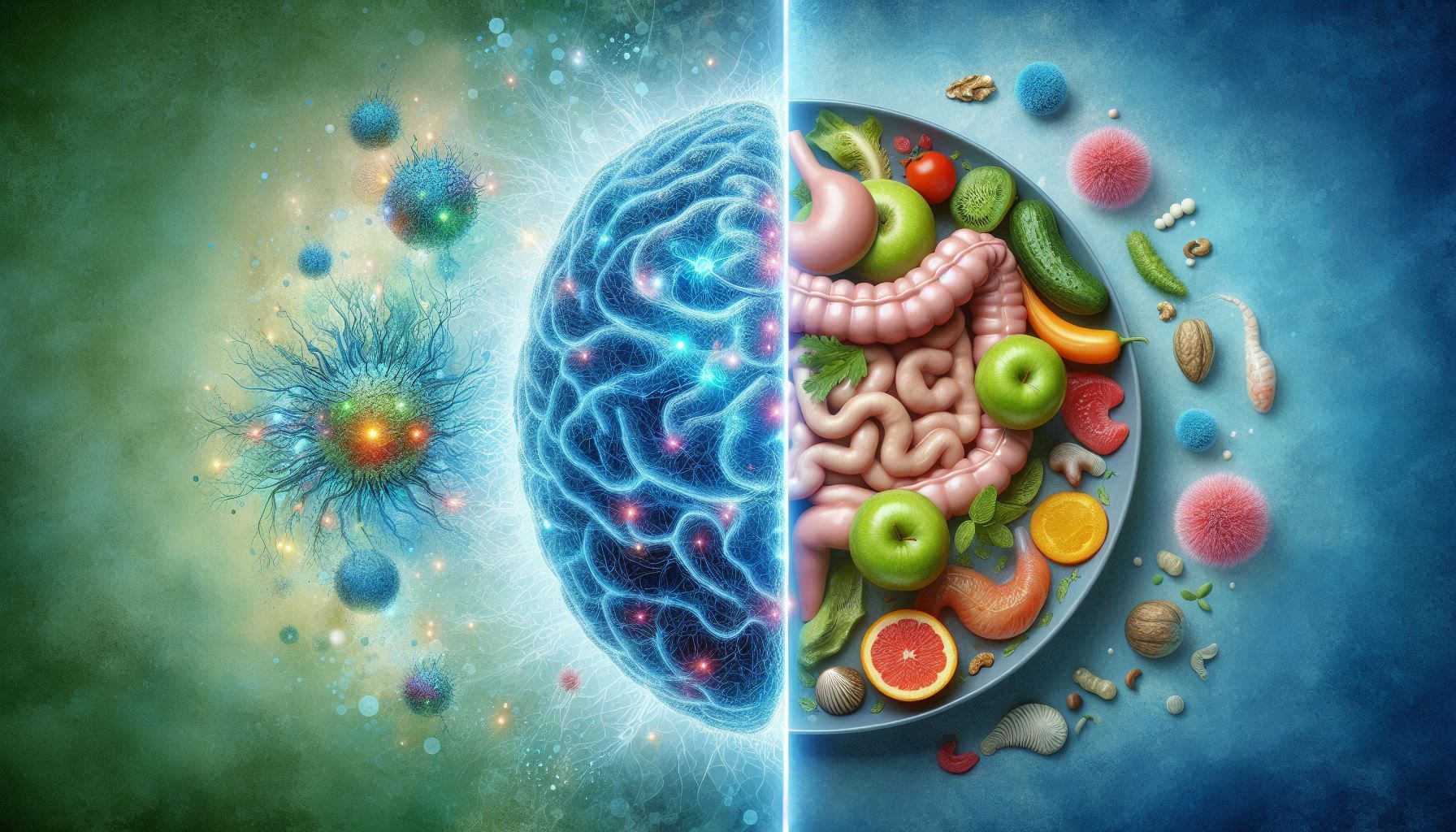Nutrition is fundamental to the growth, development, and overall well-being of children. Establishing good eating habits during childhood can have lasting effects on physical health, cognitive growth, emotional strength, and lifelong eating patterns. Understanding essential nutrients and implementing best practices in childhood nutrition can help families support healthy development. A well-balanced diet provides key nutrients such as protein for growth and muscle repair, carbohydrates for energy, healthy fats for brain development, and essential vitamins and minerals to support various bodily functions. Ensuring children receive a variety of fruits, vegetables, whole grains, lean proteins, and healthy fats is crucial.
Parents, caregivers, and educators play a vital role in fostering healthy eating habits. Practical steps include creating balanced meals, encouraging a variety of foods, limiting processed and sugary snacks, involving children in meal preparation, and promoting positive mealtimes free from distractions. Teaching kids to listen to their bodies and eat mindfully also supports a healthy relationship with food. For children with special dietary needs, such as food allergies or specific lifestyle choices like vegetarianism, consulting a healthcare provider or nutritionist is essential to meet nutritional requirements. By prioritizing these best practices, families can help children develop a strong foundation for lifelong health and well-being.
The Importance of Childhood Nutrition
Childhood is a time of rapid growth and development. During these formative years, children experience physical and cognitive growth at a rate unparalleled at any other time in their lives. The nutrients that children consume during this period lay the foundation for their future health and well-being. Here’s why nutrition is essential during childhood:
- Physical Growth and Development: Proper nutrition supports bone development, muscle growth, and the development of body systems. Nutrients like protein, calcium, and vitamin D are vital for building strong bones and tissues.
- Brain Development: The brain continues to develop rapidly during childhood, and proper nutrition is critical for cognitive function, memory, attention, and overall learning abilities. Nutrients such as omega-3 fatty acids, iron, and B vitamins play a crucial role in brain health.
- Immune System Support: Nutritional intake is crucial for a robust immune system. Vitamins and minerals such as vitamin C, zinc, and iron help defend against infections and support recovery when illnesses occur.
- Energy and Activity Levels: Childhood is a time of high energy, and balanced nutrition helps maintain energy levels for play, school, and social activities. Carbohydrates, fats, and proteins all play a role in providing energy.
By prioritizing nutrition, parents and caregivers can significantly influence a child’s physical and mental growth, laying the groundwork for a healthier future.
Nutrients That Fuel Growth and Development
Essential Nutrients for Children
For optimal growth and development, children need a variety of nutrients, each playing a specific role in their health. Below, we break down the most essential nutrients and their sources:
1. Protein
- Importance: Protein is a building block for the body. It supports muscle growth, repair of body tissues, the production of enzymes and hormones, and a variety of metabolic processes.
- Sources: Protein-rich foods include lean meats like chicken, turkey, and fish; dairy products such as milk, cheese, and yogurt; plant-based sources like beans, lentils, chickpeas, and tofu; and eggs.
- Recommended Intake: Protein needs vary by age, but for children, it’s generally around 1.1 to 1.5 grams per kilogram of body weight per day. For a 5-year-old weighing 20 kg (44 lbs), that would be about 22 to 30 grams of protein per day.
2. Carbohydrates
- Importance: Carbohydrates are the body’s primary source of energy, powering activities, brain function, and general growth. They are especially important for active children who need sustained energy throughout the day.
- Sources: Whole grains such as brown rice, whole-wheat bread, oats, and quinoa; fruits and vegetables; legumes like beans and lentils; and starchy vegetables like sweet potatoes.
- Recommended Intake: Carbohydrates should make up 45-65% of a child’s total daily calorie intake. This helps provide the necessary energy while supporting healthy growth.
3. Healthy Fats
- Importance: Healthy fats play a critical role in brain development and help the body absorb fat-soluble vitamins (A, D, E, K). They also support cell function and hormone production.
- Sources: Sources of healthy fats include avocados, nuts, seeds, fatty fish like salmon, olive oil, and flaxseeds.
- Recommended Intake: Fats should make up about 25-35% of total daily calories, with an emphasis on unsaturated fats and limited saturated and trans fats.
4. Vitamins and Minerals
Children need an array of vitamins and minerals for optimal health. Here are the most important ones:
- Calcium: Vital for strong bones and teeth. It supports bone density and development, which is especially important during the rapid growth phases of childhood.
- Sources: Dairy products, fortified plant-based milk, leafy greens, and almonds.
- Recommended Intake: Approximately 1,000 mg per day for children aged 4-8, and up to 1,300 mg per day for those aged 9-18.
- Iron: Essential for the production of hemoglobin, which carries oxygen in the blood. Iron deficiency can lead to anemia, impacting energy levels and cognitive development.
- Sources: Red meat, poultry, fish, beans, lentils, and fortified cereals.
- Recommended Intake: Children aged 4-8 need around 10 mg per day, while those aged 9-13 need about 8 mg per day. Teenage girls need more (around 15 mg) due to menstruation.
- Vitamin D: Helps the body absorb calcium and is crucial for bone health.
- Sources: Fortified milk, eggs, and exposure to sunlight.
- Recommended Intake: About 600 IU per day for children aged 1-18.
- Vitamin C: Supports immune function and helps the body absorb iron from plant sources.
- Sources: Citrus fruits, strawberries, bell peppers, and broccoli.
- Recommended Intake: 25-45 mg per day, depending on age.
- Zinc: Vital for cell growth, immune function, and wound healing.
- Sources: Meat, shellfish, dairy, beans, and nuts.
- Recommended Intake: Approximately 5-8 mg per day, depending on age.
5. Water
- Importance: Water is crucial for hydration, digestion, and maintaining body temperature. Children are more susceptible to dehydration, which can impact their energy, focus, and overall health.
- Recommended Intake: It varies based on age and activity, but generally, children need between 1 to 1.5 liters per day, adjusting based on factors like climate and physical activity.
Practical Tips for Promoting Healthy Eating
- Plan Balanced Meals: A well-rounded meal includes a variety of food groups. For example, a balanced breakfast might include whole-grain oatmeal topped with fresh berries and a side of low-fat yogurt. A nutritious lunch could feature a chicken and vegetable stir-fry served with brown rice, while dinner could be salmon, sweet potatoes, and steamed broccoli.
- Incorporate a Variety of Foods: Children need different foods for optimal nutrition. Serve a variety of colorful fruits and vegetables, whole grains, and protein sources throughout the week to ensure they get a comprehensive range of nutrients. Rotating foods helps prevent nutrient deficiencies and encourages kids to try new tastes.
- Limit Processed and Sugary Foods: Processed and sugary foods can be tempting, but they provide minimal nutritional value and can lead to weight gain, energy crashes, and long-term health issues like diabetes and heart disease. Limit sugary drinks, candies, chips, and processed snacks, focusing on fresh fruits, homemade meals, and nutrient-dense options.
- Be a Role Model: Children learn by example. When parents and caregivers model healthy eating habits, they create a positive environment that encourages good choices. Include fruits, vegetables, and other healthy foods in your own diet, and involve children in preparing and enjoying meals together.
- Create Positive Mealtime Experiences: Make meals enjoyable by creating a pleasant eating environment. Avoid distractions like television or phones during meals, and encourage family conversations. Let children participate in setting the table or choosing dishes to promote a sense of involvement and excitement about mealtime.
- Involve Children in Meal Prep: Children are more likely to eat foods they help prepare. Allowing them to wash vegetables, stir ingredients, or add toppings can make them more interested in eating what they’ve helped make. This hands-on approach can also teach valuable skills and create a sense of accomplishment.
- Encourage Mindful Eating: Teach children to recognize hunger and fullness cues. Eating slowly and paying attention to the flavors and textures of food helps children become more attuned to their body’s signals, leading to healthier eating habits and avoiding overeating.
- Provide Healthy Snacks: Offer a variety of nutritious snacks like apple slices with peanut butter, yogurt with fruit, mixed nuts, or veggie sticks with hummus. Healthy snacks help bridge the gap between meals and maintain energy levels.
Special Dietary Needs
1. Picky Eaters
Children can be picky eaters, often refusing certain foods or types of food. To support picky eaters:
- Introduce New Foods Gradually: Pair unfamiliar foods with familiar favorites to make trying new foods less intimidating.
- Use Creative Presentation: Make food visually appealing by cutting fruits and vegetables into fun shapes or arranging them into a colorful plate.
- Be Patient: It can take multiple exposures for a child to accept a new food. Keep offering it without pressure.
2. Food Allergies
Food allergies can limit the variety of foods a child can eat, but with careful planning, a balanced diet is still achievable:
- Substitute Allergic Foods: For dairy allergies, choose fortified plant-based milk alternatives. For nut allergies, try seeds like sunflower or pumpkin seeds.
- Read Labels Carefully: Always check food labels for hidden allergens and cross-contamination risks.
- Work with a Nutritionist: Consult a pediatrician or registered dietitian to ensure your child is meeting their nutritional needs while avoiding allergens.
3. Vegetarian and Vegan Diets
Plant-based diets can support growth and development if properly planned:
- Ensure Adequate Protein: Include a variety of protein sources such as lentils, beans, tofu, tempeh, and edamame.
- Include Iron-Rich Foods: Combine plant-based sources of iron (like beans and spinach) with vitamin C-rich foods to enhance absorption.
- Watch Vitamin B12 Levels: Vitamin B12 is found primarily in animal products, so consider fortified foods or supplements.
- Omega-3 Sources: Include flaxseeds, chia seeds, and walnuts to support brain health.
The Role of Supplements
While the best approach is to meet nutritional needs through a balanced diet, some children may require supplements:
- Vitamin D: Especially important for children in regions with limited sunlight, vitamin D supports bone health.
- Iron: For children at risk of anemia, iron supplements may be necessary. Foods rich in iron should be prioritized, and supplements should only be taken under medical guidance.
- Omega-3 Fatty Acids: For children who do not eat fish, consider a supplement with DHA and EPA, which are vital for brain development.
- Multivitamins: These can be useful for picky eaters or children with dietary restrictions. However, it’s important to avoid over-supplementing, as some vitamins and minerals can be toxic at high levels.
When to Consult a Professional
If you have concerns about your child’s growth, energy levels, or eating habits, consult with a pediatrician or nutritionist. They can help assess your child’s dietary intake and recommend a personalized nutrition plan.
Addressing Common Pitfalls
- Skipping Meals: Skipping meals can lead to overeating later and can impact a child’s energy, focus, and growth. Ensure your child has balanced meals throughout the day. Breakfast is particularly important, as it kickstarts metabolism and provides energy for the day ahead.
- Focusing Only on Calories: While monitoring calorie intake is important for managing weight, focusing only on calories can lead to neglecting nutrient quality. Ensure meals are nutrient-dense, with a balance of carbohydrates, proteins, fats, and essential vitamins and minerals.
- Ignoring Emotional Eating: Children sometimes turn to food for comfort, which can lead to unhealthy eating habits. Teach children to recognize the difference between physical hunger and emotional eating and encourage healthy coping mechanisms like talking, reading, or physical activity.
- Relying on Sugary Drinks: Sugary drinks like sodas, juices, and sports drinks provide calories without essential nutrients. Water and milk are healthier options. Encourage children to choose water as their primary beverage and limit fruit juices to small servings.
Encouraging Lifelong Healthy Habits
- Teach the Importance of Balanced Meals Early: Starting early with healthy eating habits helps set the stage for a lifetime of balanced eating. Use simple explanations and hands-on activities to teach children about the benefits of eating well.
- Emphasize Regular Physical Activity: Combining good nutrition with regular physical activity promotes optimal health. Encourage children to engage in activities they enjoy, whether it’s dancing, sports, cycling, or playing outside.
- Foster a Positive Relationship with Food: Avoid creating an environment where food is viewed as a reward or punishment. Instead, focus on the nourishing aspects of food and use positive language around mealtimes.
- Get Creative with Recipes: Make healthy eating fun by experimenting with new recipes and involving children in cooking. Try making homemade veggie pizzas, healthy smoothies, or fruit-based desserts.
Conclusion
Childhood nutrition is crucial for a child’s growth and development, impacting physical health, cognitive function, and social well-being. Proper nutrition during early years helps build strong bones, support brain development, enhance the immune system, and promote healthy energy levels. Parents and caregivers can play a pivotal role by providing nutrient-dense foods and modeling healthy eating habits. Offering a diverse diet rich in fruits, vegetables, whole grains, lean proteins, and healthy fats ensures children get the essential nutrients needed for their age and activity level. Creating positive mealtimes and involving children in meal preparation can make healthy eating enjoyable and encourage lifelong good habits.
Teaching children to listen to their bodies and eat mindfully is important for developing a healthy relationship with food. Avoiding processed and sugary foods, limiting screen time during meals, and fostering family meals without distractions can help establish these practices. For children with dietary restrictions or special nutritional needs, such as food allergies or vegan diets, consulting a healthcare provider or nutritionist is key to ensuring they meet their nutritional requirements. These experts can offer guidance on substitutions and supplementation to maintain optimal health. With the right approach, parents and caregivers can set the groundwork for a lifetime of healthy eating and overall well-being.
SOURCES
Gonzalez, A. M. (2021). Childhood Nutrition and Long-Term Health Implications. Academic Press.
Berkman, L. F., & Glass, T. (2020). Social Integration, Social Networks, and Health. Oxford University Press.
Lund, E. M., & Rønning, M. (2019). Best Practices in Early Childhood Nutrition. Routledge.
Harris, J. L., & Schwartz, M. B. (2020). The Influence of Food Marketing on Children’s Dietary Choices. Academic Press.
Williams, L. C. (2018). Building Healthy Habits: Nutritional Strategies for Parents and Caregivers. Health Publishing Co.
Smith, P. R., & Jones, L. A. (2021). Role of Vitamins and Minerals in Childhood Development. Nutritional Science Press.
HISTORY
Current Version
November 27, 2024
Written By:
SUMMIYAH MAHMOOD




